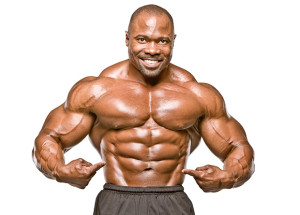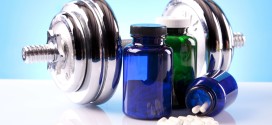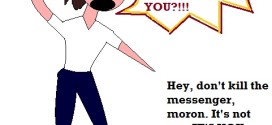As any athlete or UFC fan knows there is an exact science to dropping weight for a fight. Some consider it an advantage such as Anderson Silva who allegedly walks around at 220 pounds (and more) between fights whilst famously former Lightweight Champ Frankie Edgar’s weight doesn’t ever change, even between off season and weigh-ins. Here we investigate the art of cutting, addressing everything from muscle glycogen, water retention and even mentally how you’re affected to see if it’s wise To Cut, Or Not To Cut?
Muscle Glycogen: Good To Cut
 Many fighters when looking to make weight will cut out high carbohydrate foods such as rice, pasta, cereal, energy drinks and bars since carbohydrates once eaten store as muscle glycogen in the body and weigh 18 grams per kilogram of muscle. To use the featherweight champ Jose Aldo as an example, at 66kg he has roughly 22kg of pure muscle and since muscle contains 18 grams of muscle glycogen per kilo this means 396 grams of Jose Aldo’s body is muscle glycogen. Therefore if he was to cut out carbohydrates 24 hours before a fight and perform 2 hours of light cardio like cycling at a slow pace on bike, he would be able to lose 396 grams before weigh in, that’s 0.396 kilograms or 0.873 pounds.
Many fighters when looking to make weight will cut out high carbohydrate foods such as rice, pasta, cereal, energy drinks and bars since carbohydrates once eaten store as muscle glycogen in the body and weigh 18 grams per kilogram of muscle. To use the featherweight champ Jose Aldo as an example, at 66kg he has roughly 22kg of pure muscle and since muscle contains 18 grams of muscle glycogen per kilo this means 396 grams of Jose Aldo’s body is muscle glycogen. Therefore if he was to cut out carbohydrates 24 hours before a fight and perform 2 hours of light cardio like cycling at a slow pace on bike, he would be able to lose 396 grams before weigh in, that’s 0.396 kilograms or 0.873 pounds.
Expert Tip:
If you’re looking to cut weight through reducing the amount of carbohydrates stored in the body (depleting muscle glycogen stores) a study published in The Journal Of Physiology showed that low intensity cardio such as jogging or steady cycling was best at achieving this compared to high intensity training such as sprinting. This is because scientists found that slow twitch muscle fibres (the muscle fibres used during endurance events) are the first to be depleted during exercise followed by fast twitch muscles fibres (the muscles fibres used during sprinting events)
P. D. Gollnick, Karin Piehl and B. Saltin (1974) ‘Selective glycogen depletion pattern in human muscle fibres after exercise of varying intensity and at varying pedalling rates.’ August 1, 1974 The Journal of Physiology, 241, 45-57.
Muscle Glycogen: Bad To Cut
A study conducted in Stockholm, Sweden studied an athlete’s ability to exercise when they were depleted of carbohydrates. They found they fatigued and ‘gassed out’ about 40% quicker than those who were on a high carbohydrate diet (Jonas Bergström et al, 1967). This means that although you can lose a certain amount of weight through a low carbohydrate diet, if you’re not able to load the body back up with carbohydrates (i.e. replenish muscle glycogen stores) between the weigh-in and the fight, you could be working at only 60% of your maximum ability. One method that fighters use is to consume a high carbohydrate drink immediately after weigh in. This is because it’s in liquid form so is absorbed far quicker by the body than most solid foods like pasta or rice.
Water: Good To Cut
Another way fighters might look to drop weight is to rid the body of water through saunas, sweat-suits, stopping water intake or even using diuretics. This can prove effective since 1 gram of muscle glycogen is linked to 3.5 grams of water. So using Jose Aldo as an example, if he has 22kg of muscle and 396 grams of muscle glycogen, which means he has 1386 grams of water in his muscles alone. That means through a light sauna, steady cardio and restricting water intake Jose would be able to lose 1.386kg of water (or 3.05561 pounds).
Water: Bad To Cut
Most obviously becoming dehydrated can massively affect performance, so much so at the US Army Research Institute of Environmental Medicine in America it was found that if you become dehydrated over 2% of your overall bodyweight it can dramatically alter everything from your cardiovascular system, your central nervous system and even metabolic functions. So although dehydrating and making weight can offer a size advantage, if you aren’t able to rehydrate in time you could enter the Octagon tired, weak and not fighting to your potential.
Mentally: Good To Cut
Whilst all of the above deals with how the body is affected physically, it should be noted how the body responds mentally too. Since you don’t need any studies or science to tell you that it’s an advantage if you are able to cut weight and then become a few kg’s heavier come fight night. It just gives you an advantage over your opponent in terms of grabbling and arguably psychologically too as you appear to be a bigger and meaner version of your self that was weighing in.
Mentally: Bad To Cut
Studies show that low carbohydrate diets can affect the chemical reactions that occur within the brain, leaving you feeling tired and demotivated. This is because it can affect the amount of serotonin (the ‘happy hormone’) your body produces. Therefore although you might make weight, it could leave you feeling weak and unfocused in the fight.
Conclusion:
Most strength and conditioning coaches will stress the importance of losing unwanted body fat before a fight and then rely on the tips and tricks mentioned above to lose that additional few pounds if needed, but not to rely on them..
 Supplement Judge Unbiased Supplement Reviews – Do they really work??
Supplement Judge Unbiased Supplement Reviews – Do they really work??




